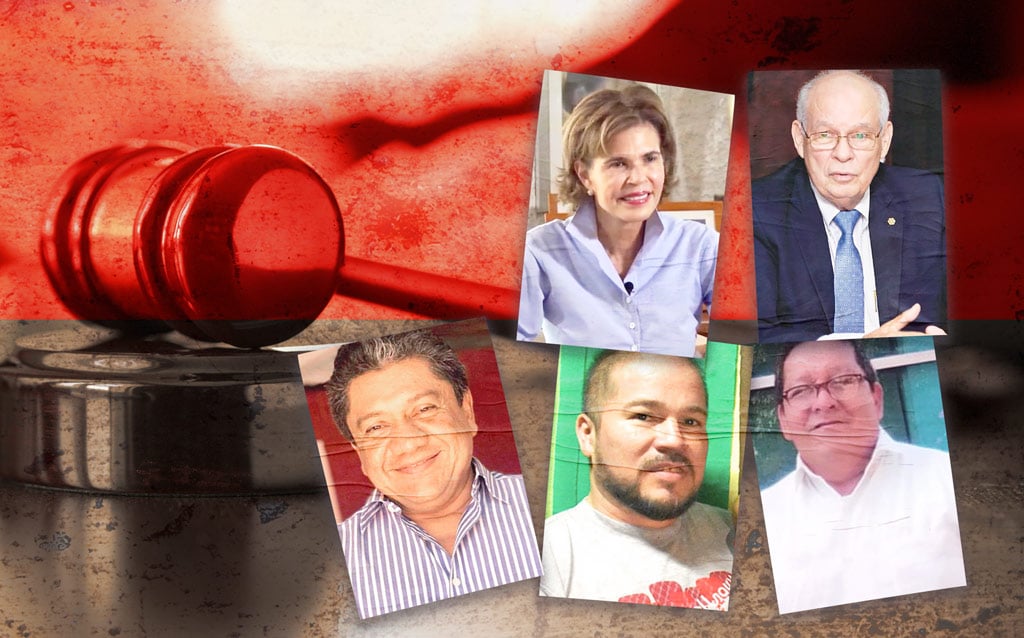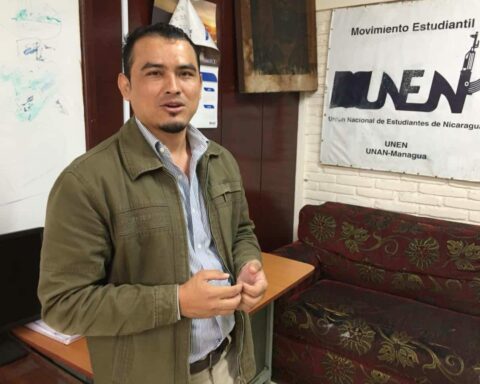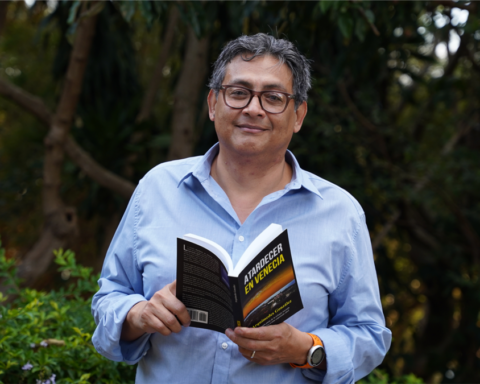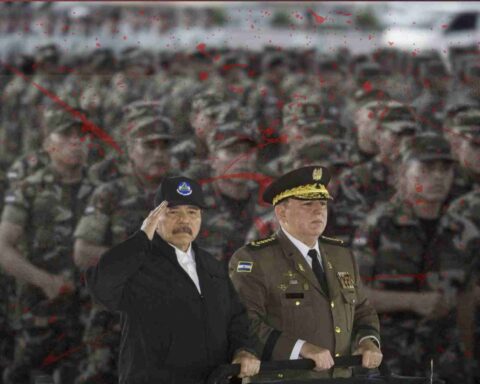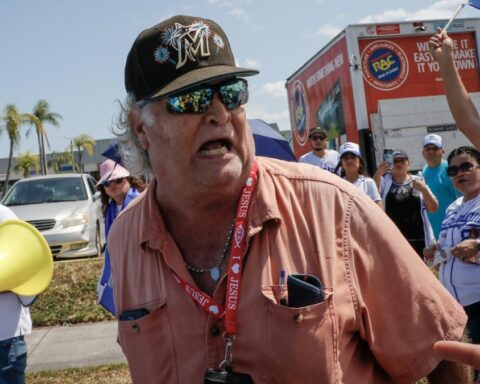Lawyer Orieta Benavides, lawyer for Cristiana Chamorro Barrios –presidential candidate and former president of the Violeta Barrios de Chamorro Foundation, convicted by the justice system of Daniel Ortega– denounced that the entire judicial process against the Foundation for the alleged crime of money laundering , property and assets, “was a manual of violations of due process.” In the impeachment trial, former deputy Pedro Joaquín Chamorro Barrios, former accountant Marcos Fletes, former financier Walter Gómez and driver Pedro Vásquez were also convicted.
“The entire procedure from start to finish was riddled with nullities and arbitrariness. Absolutely all the procedural and constitutional rights and guarantees of each of the people subjected to this illegal and undue process were violated,” said Benavides at the forum “Nicaragua: Trials, arbitrariness and nullities as weapons of repression,” held by the regional network of civil society organizations from Latin America Voces del Sur.
On March 21, Cristiana Chamorro was sentenced to eight years in prison: five years for the alleged crime of money laundering and three years for alleged misappropriation and improper retention.
Former deputy Pedro Joaquín Chamorro Barrios, brother of Cristiana and former vice president of the FVBCh, was sentenced to nine years in prison: six for the alleged crime of improper appropriation and retention, and three for alleged abusive management. While the former employees of the Foundation, Marcos Fletes and Walter Gómez, in addition to Pedro Vásquez, Cristiana’s driver, received sentences of between 13 and seven years in prison, respectively.
Benavides denounced that some of the arbitrariness and illegalities in the case include: the prohibition of all communication with his defense, secret hearings, restriction of access to his files, imposition of public defenders, obstruction of a material and effective defense, and the omission of evidence that “clearly demonstrated the non-existence of each of these crimes and the total innocence of our clients”.
Voces del Sur denounces “politicized trials”
During the opening of the forum on Nicaragua, Thomas Burt, coordinator of Voces del Sur, denounced “the politicized trials that violate international standards”, “the judicialization against the independent press and the cancellation of the legal status of civil society, focused on promoting freedom of expression.
Voces del Sur pointed out that the situation in Nicaragua is “increasingly complex” and “the use of judicial processes to silence dissidents has become a harmful practice.”
International jurists and academics who participated in the forum analyzed the serious abuses and violations of human rights that are committed in Nicaragua. Among the panelists were: Laura Chinchilla, former president of Costa Rica; Paulo Abrao, former executive secretary of the IACHR; and lawyers Jocelyn Nieva, from the United States; José Sánchez Moreno, from Peru, and Ciro Colombara, from Chile.
Lawyer Jocelyn Nieva, legal advisor for Latin America at the International Center for Non-Profit Sector Law, denounced the misuse of global standards for the fight against the financing of terrorism and money laundering in Nicaragua, with the approval of repressive laws that “limit the legitimate work of organizations.”
In Nicaragua, non-profit organizations have been singled out by the Ortega-Murillo regime for being used to launder money and finance terrorism. From April 2018 to March 2022, Ortega’s canceled legal status from 143 NGOs and confiscated the assets of at least half a dozen of those organizations.
The Peruvian José Sánchez Moreno, a lawyer specializing in human rights, emphasized that “we must document all these facts” that violate the freedoms and rights of Nicaraguans and “turn to a universal system such as the United Nations,” requesting and seeking that It is possible to implement “a vision of determining the facts, which allows the world to know what is happening in terms of human rights violations in Nicaragua.”
Pablo Abrao, doctor of law and former executive secretary of the Inter-American Commission on Human Rights (IACHR), reiterated that in Nicaragua there is “state terrorism” and pointed out that “trials against political prisoners are null and void and that we must fight against that illegality and arbitrariness”.
In addition, he considered that “one of the fundamental missions that the current investigation mechanism for Nicaragua, created last week by the UN Human Rights Council, should prioritize is to fight against this illegality and arbitrariness, because it is effectively of a situation that violates the basic human rights guarantees of the people of Nicaragua.”
International system “must do more for Nicaragua”
Laura Chinchilla, former president of Costa Rica, also advocated better work for the international system that watches over democracy and human rights, criticizing that it “has fallen short of being able to do something effective in the face of the situation in Nicaragua.”
“We have a serious problem that we have to recognize, that is, there is an inter-American system designed to respond to the abrupt interruption, but not to the gradual deterioration such as the cases of democratic deterioration that we are observing in some way. It is a system that operates under the logic that everything is fine until everything is bad, but when it is already bad, there is little room for maneuver that is available, ”he pointed out.
Chinchilla stressed that, given the serious human rights violations that are being committed in Nicaragua, “it is incredible that to date it has not been possible to apply the Democratic Charter and the instruments that it implies,” from the Organization of American States (OAS ).
“We see the regime no longer just making fun of the different instruments of human rights, protection of democracy at the regional level and at the level of the United Nations, but also beginning to use existing instruments such as the FATF for its own purposes,” he said.

